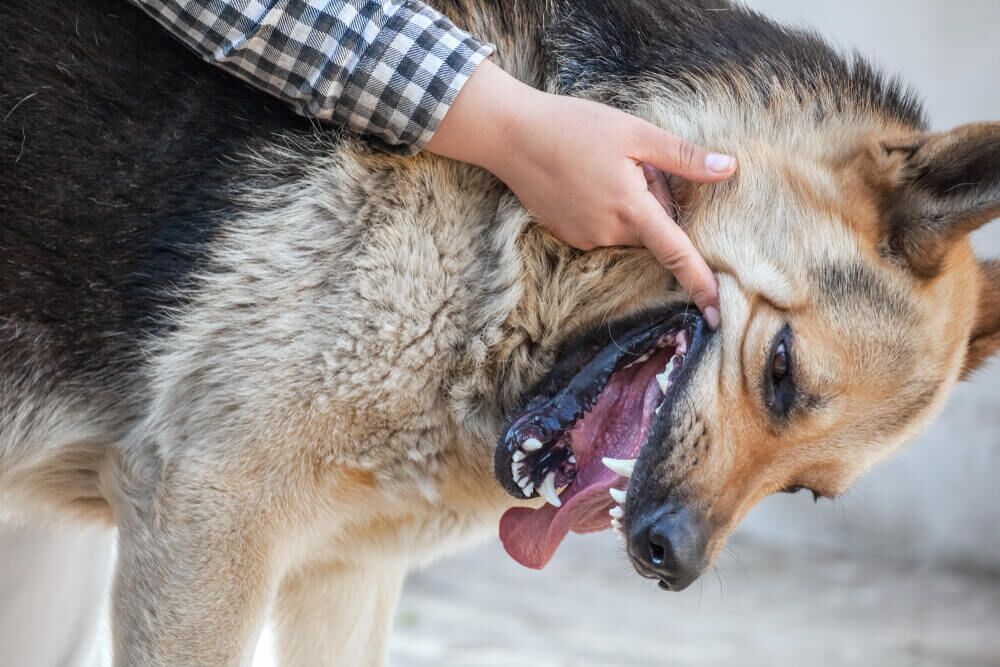Dog Grinding Teeth: Causes, Symptoms, and Solutions


Dog Grinding Teeth: Causes, Symptoms, and Solutions
Table of Contents
What is Dog Grinding Teeth?
Dog grinding teeth or bruxism is when the top teeth rub against the bottom teeth in a side-to-side motion vs. up and down. Constant tooth grinding leads to dental wear and can cause discomfort in the temporomandibular joint (TMJ).
This joint connects the skull to the lower jaw and is responsible for the opening and closing of the mouth. In more severe cases, repetitive grinding can also result in arthritis.
What Does Dog Grinding Teeth Sound Like?
Dog grinding teeth is usually subtle. However, in some cases, there can be subtle dog teeth chattering sounds that you will hear if you really concentrate.
Different dogs have different teeth grinding intensities.
Why is My Dog Suddenly Grinding Its Teeth?
There are several possible causes for dog grinding teeth. Here is a closer look at the most common causes:
- Dental Issues. All dental problems can result in bruxism. This includes jaw abnormalities, teeth misalignment, malocclusions or overbite, fractured teeth, broken teeth, dental disease, gum disease or periodontal disease, ulcerations in the mouth, etc. Basically, any condition resulting in oral pain can trigger teeth chattering.
- Abdominal Pain. If your dog grinds its teeth, it might be experiencing gastrointestinal pain or simply discomfort. The exact mechanism behind the behavior is unknown. However, the theory is that the teeth grinding is the dog’s way of directing its focus on something other than the pain.
- Anxiety. Dog anxiety is quite common and may result in teeth chattering, among other signs. Finding the dog’s anxiety trigger is imperative to stop the bruxism and improve the overall life quality.
- Focal Seizures. Dog teeth grinding can be a sign of focal seizures in dogs. Focal seizures are less dramatic than generalized epilepsy and harder to notice. However, they still need proper management.
Is Teeth Grinding in Dogs a Sign of Gastrointestinal Problems?
Yes, dog grinding teeth can be a sign of gastrointestinal problems.
If you hear teeth grinding sounds from your dog’s mouth, it is best to visit the vet to understand the health problem.
Is Teeth Grinding Harmful to Dogs?
Yes, dog grinding teeth can be harmful. It is crucial to figure out the underlying cause and provide your dog with the right dental care.
Both the grinding itself and its possible cause are potentially harmful. The veterinarian will perform a physical examination and proper health assessment to determine the underlying cause.
How do I Get My Dog to Stop Grinding Teeth?
There are several ways to stop your dog’s teeth from grinding, and they depend on the underlying cause. Here are the possible solutions:
- For Anxiety-Related Grinding. Consulting a behaviorist can help to treat teeth grinding caused by anxiety. Additionally, desensitization, socialization, and positive reinforcement can also be used. Also, some vets suggest using a dog-appeasing pheromone that can be used (for example, Adaptil diffusers, and collars). After talking to a vet, you can also give your dog CBD oil for their anxiety.
- For Gastrointestinal-Related Grinding. If your dog has some GI issue that leads to teeth grinding, you might want to opt for medical or surgical management. Pain relief, anti-nausea medications, antispasmodic, and antacids can be used with gastrointestinal disorders depending on the clinical signs shown.
- For Dental Disease-Related Grinding. If the cause of bruxism is because of dental disease, your dog might require complete dental treatment. This might include teeth extraction or cleaning. It is best to consult a vet to rule out dental disease and other health issues.
How Long Does Dog Grinding Teeth Last?
Depending on the health condition, your dog might go through the teeth grinding phase.
For puppies who are getting new teeth, there might be some teeth grinding. However, if your pet’s health is not suitable, they might have prolonged periods of teeth grinding.
If you notice that the dog grinding teeth lasts for more than a week, it is best to consult a vet as your dog might be in pain. Unless treated, the grinding can become worse and start to impact your dog’s eating habits.
When Should I Go to the Vet for Teeth Grinding in Dogs?
You should visit the vet for dog grinding teeth if the issue is intense, lasts long, or is accompanied by additional signs and symptoms.
Here are some of the signs you should look for that indicate oral health issues and warrant a trip to the vet’s office:
- Periodontal disease (inflamed, sore gums)
- A fractured tooth or excessive dog teeth tartar
- An infection like a tooth root abscess
- Soft tissues wound or injury in the mouth
- Signs of pain and disabled eating
- A tumor or growth in the mouth
- Puppy teething pain
